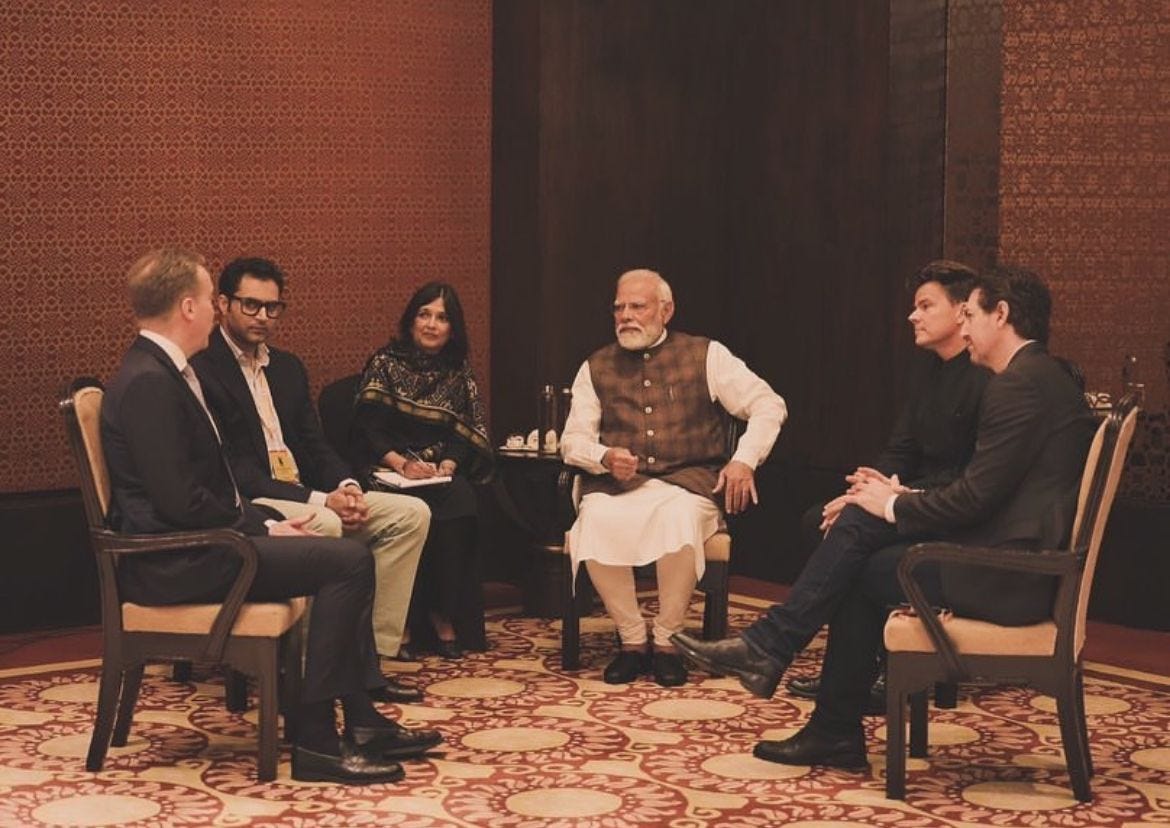Meeting PM Modi, Elon Musk vs Lemon
The debates that persist
Fundamentally Network Capital is in the talent spotting and talent nurturing mission. Through our endeavors, we aspire to find the sharpest minds on the planet and help them to their best work.
We hosted our community member and Cambridge academic Tripurdaman Singh in 2022 to discuss his book about the debates that defined India. Few days back he met with the Prime Minister of India, Mr. Narendra Modi, to share key insights based on his research on India and South Asia.
In his book "Sixteen Stormy Days: The Story of the First Amendment of the Constitution of India," Singh delves into the heated parliamentary debates that led to the First Amendment of the Indian Constitution in 1951. These debates, he argues, played a crucial role in defining the newly independent nation.
Singh highlights several key debates that had far-reaching consequences for India:
1. Freedom of Speech and Expression: The debates surrounding the First Amendment focused heavily on the balance between the right to free speech and the need to maintain public order and security. The amendment introduced reasonable restrictions on freedom of speech, which Singh argues was a necessary compromise to preserve national integrity.
2. The Role of the State: The debates also touched upon the role of the state in a socialist-leaning economy. Some argued for a more interventionist state to ensure equitable distribution of resources, while others advocated for a more limited role to protect individual liberties.
3. Secularism: The debates laid the foundation for India's unique brand of secularism, which differs from the Western concept of complete separation of church and state. Singh posits that the Indian model sought to ensure equal treatment of all religions by the state while allowing for religious personal laws.
4. Affirmative Action: The discussions on social justice and equality paved the way for the introduction of affirmative action policies, such as reservations for disadvantaged groups in education and public employment.
5. Federalism: The debates also shaped the balance of power between the central government and the states, with a strong center emerging as a key feature of the Indian federal system.
Singh's work highlights how these early parliamentary debates set the stage for India's political and social development. The compromises and consensus reached during these discussions have had a lasting impact on the country's governance structure and national identity. By shedding light on these crucial debates, Singh contributes to a better understanding of the complex factors that have defined modern India.



